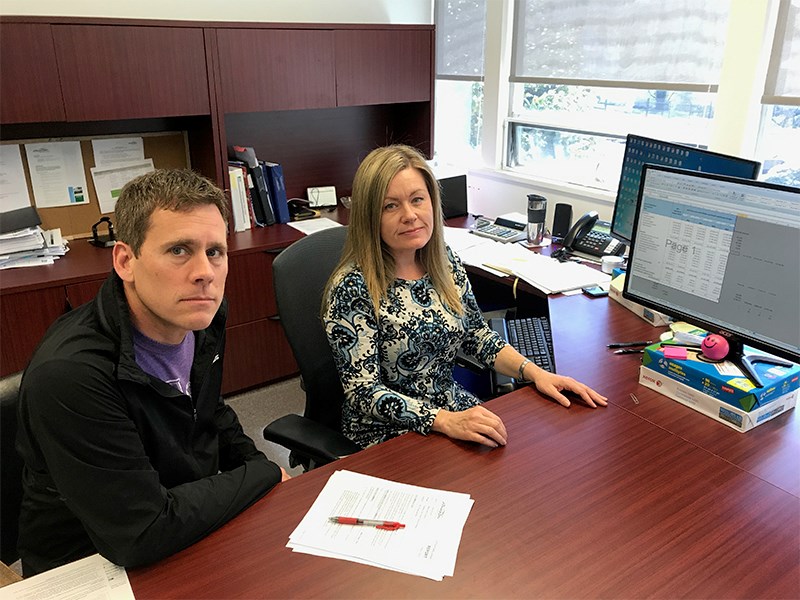City of Powell River’s finance committee is recommending city council approve a 2017 balanced budget with a 2.6 per cent municipal tax increase and minimal service cuts.
While developing the 2017 budget, the finance committee had directed city staff to limit any tax increase to 1.9 per cent, but that would have resulted in an approximate $150,000 shortfall. Going into the 2017 budget, the city saw a increase of $1.09 million for wages and benefits.
City councillor and finance committee chair Russell Brewer said the committee heard from the community that it did not support reducing operating hours of Powell River Recreation Complex or cutting back on evening public transit runs.
“What resonated with me was the discussion we had with potential cuts to the recreation complex,” said Brewer. “We had a lot of feedback on that saying ‘don’t cut the complex.’”
According to city chief financial officer Kathleen Day’s April 25 report to the finance committee, the 2017 budget will include a 1.4 per cent property tax increase to cover the new short-term debt to purchase a 132-acre parcel between Millennium Park and Townsite, a 1.2 per cent increase to general operations and a $27.70 increase to the annual residential-garbage-user fee to cover the cost of the city’s two new garbage trucks and its organics collection pilot program.
The $2 fee for garbage tags will stay in place until 2018 when the city will look at creating a bin system, said Day.
The city’s residential flat tax is being left at the 2016 level of $335 per property.
“With the difficulty, starting back in December up until now, we’ve come to a good conclusion,” said Day.
Day anticipates that developing the 2018 budget will be “smoother with shorter timelines and information to council not piecemealed out.”
“I’m not happy with the way council had to receive the information,” she said.
Minimal service cuts incorporated into the 2017 budget include a $35,000 reduction for large pavement patching, a smaller increase to bylaw enforcement and holding off on hiring another city planner until this summer.
Brewer said with more wage increases expected in 2018, city council revisiting its revitalization tax bylaw for major industry this fall and the start of talks on regionalizing the expense of parks and recreation, cuts to service levels at the complex have not been taken off the table.
Residential tax burden as a percentage of total taxes collected increased from 44 per cent in 2005 to 63 per cent in 2016. Business tax increased from 14 per cent in 2005 to 18 per cent in 2016. Major industry dropped from 42 per cent in 2005 to 18 per cent in 2016.
“The finance committee is holding off making a final decision on whether service reductions are required until the revitalization program is decided is a good step,” said Day. “We had quite a large tax increase planned for 2018. It makes me comfortable that we are doing a process that will ensure when we get to 2018 that everything is aligned and we’ll know we have all our expenditures covered with funding.”
New construction development brought an additional $270,000 in revenue last year. Brewer said hiring a planner will help facilitate the increased workload the department is dealing with.
“We need more horsepower in that department,” said Brewer. “There’s a lot more activity on that front with building permits and development permits.”
According to the five-year plan, the city expects an increase of $300,000 in 2018 from property tax created by new construction, $500,000 more from a combination of property tax increases and changes to its revitalization tax-exemption program.
The city is required to pass the 2017 budget and five-year financial plan by May 15.



